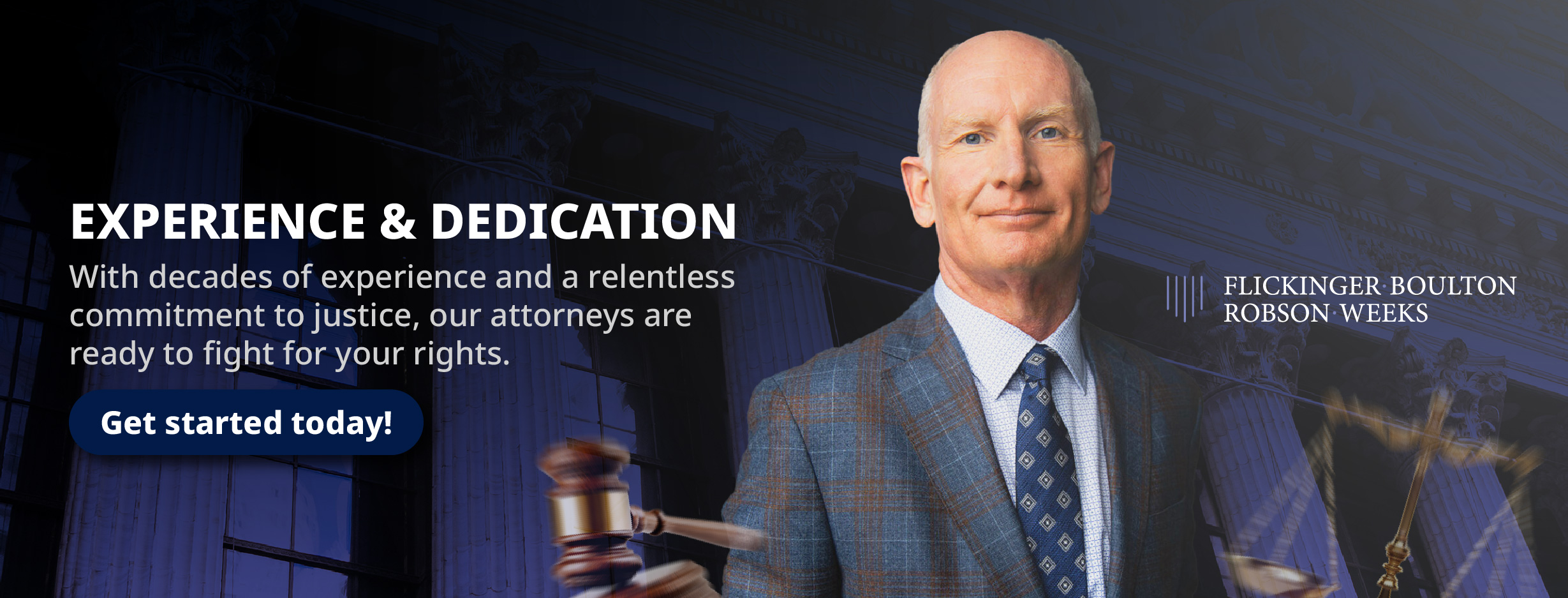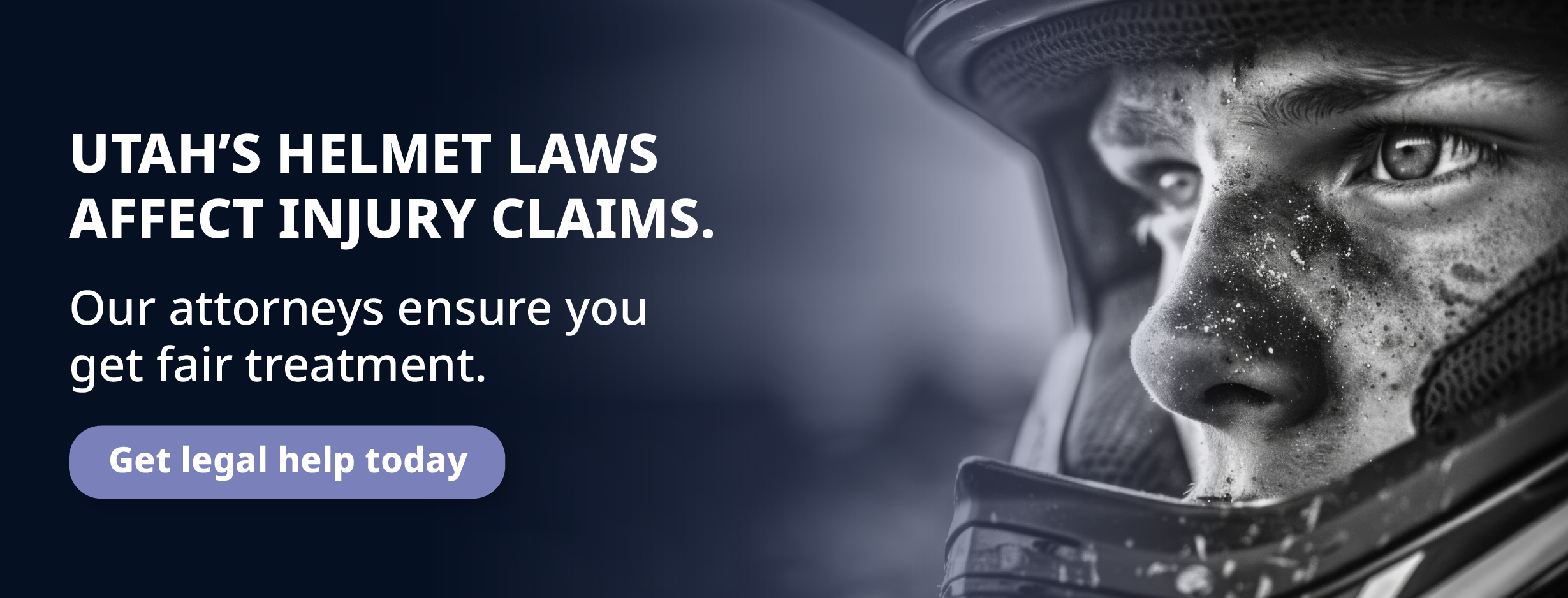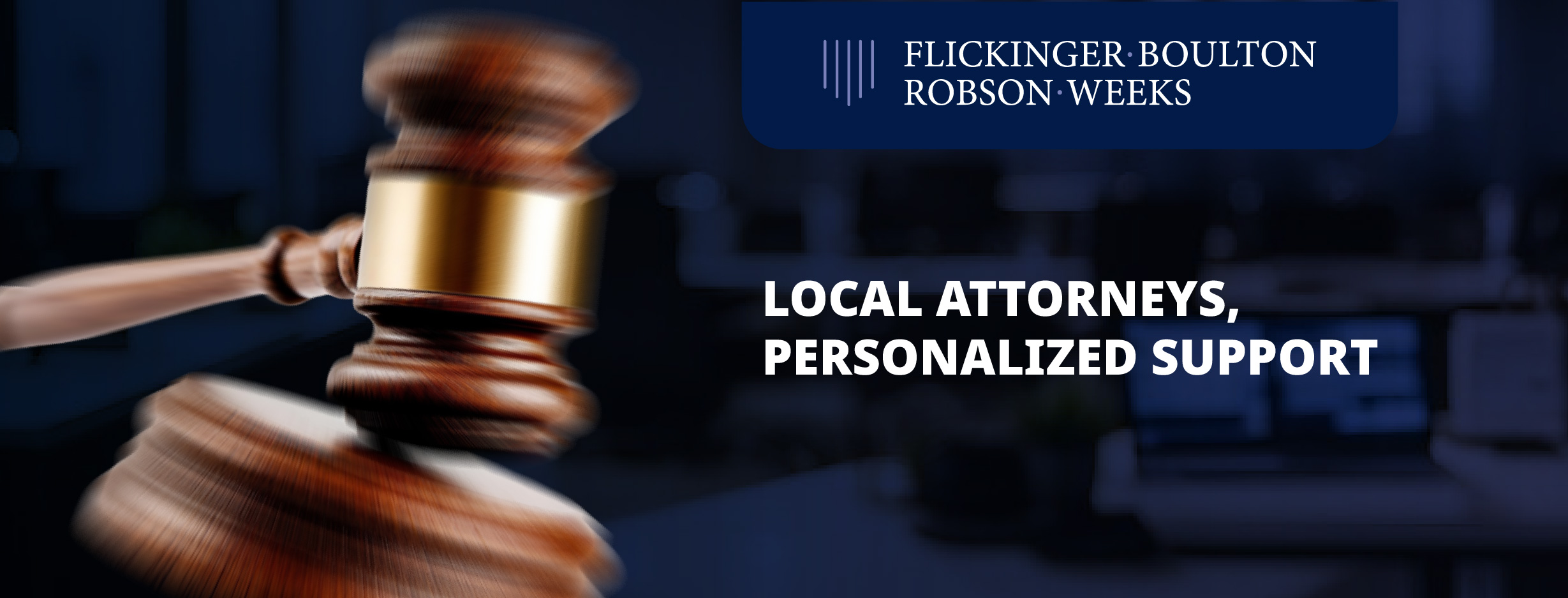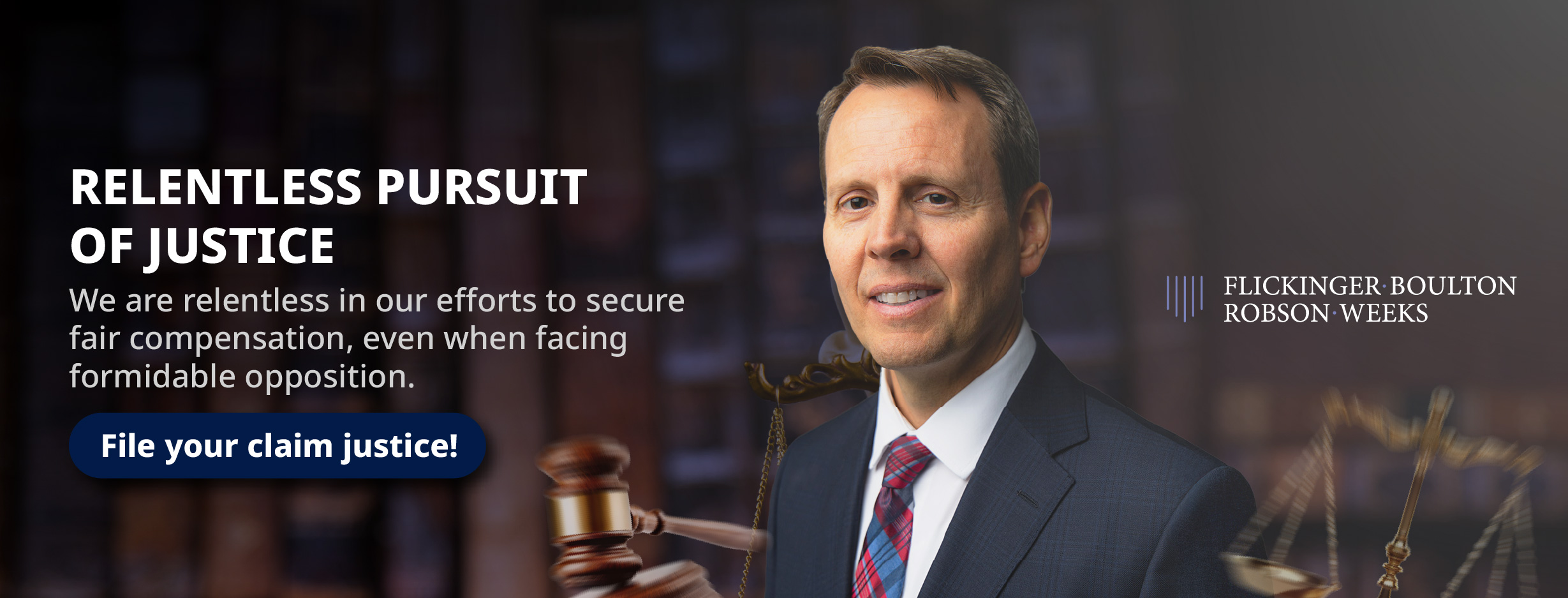¡Hablamos Español!
Dealing with insurance companies after a motorcycle accident can be frustrating and overwhelming, especially when they try to minimize or deny your claim. Insurance adjusters often look for ways to shift blame onto motorcyclists, undervalue damages, or pressure victims into accepting low settlements.
At Flickinger Boulton Robson Weeks, we understand the tactics insurance adjusters use and know how to fight back to protect your rights. Our Utah motorcycle accident lawyers are here to handle negotiations, gather strong evidence, and ensure you receive the full compensation you deserve.
If you’ve been injured in a motorcycle crash, don’t let the insurance company take advantage of you. Contact us today for experienced legal representation.

Motorcycle insurance is essential for protecting riders from financial burdens in the event of an accident. Understanding the different types of coverage available and the requirements in Utah can help motorcyclists ensure they have adequate protection.
Below is an overview of the key aspects of motorcycle insurance policies and what riders should know.
Utah law requires all motorcyclists to carry a minimum amount of liability insurance. This coverage is designed to pay for damages and injuries caused to others in an accident. The state’s minimum requirements are:
Unlike car insurance policies, motorcycles are exempt from Utah’s no-fault insurance system, meaning riders are not required to carry Personal Injury Protection coverage. This means that in an accident, motorcyclists must file a claim against the at-fault driver’s insurance or rely on their own coverage for medical expenses.
While Utah’s minimum liability coverage meets legal requirements, it may not be enough to cover damages in a serious accident fully. Riders should consider adding the following coverage options for better financial protection:
Motorcyclists often face challenges when dealing with insurance companies. Many insurers attempt to minimize payouts by:
To ensure a fair insurance claim process, motorcyclists should:
Document the accident thoroughly, including photos of the scene, vehicle damage, and injuries.
Seek medical attention immediately and keep detailed records of treatment.
Avoid giving recorded statements to insurance adjusters without consulting a lawyer.
Consult an experienced motorcycle accident lawyer to handle negotiations and protect your rights.
Having the right motorcycle insurance policy can make a significant difference in the aftermath of an accident. Understanding your coverage options and legal requirements in Utah ensures you are adequately protected. If you’re facing challenges with an insurance claim, Flickinger Boulton Robson Weeks is here to help. Contact us today for a free consultation.

After a motorcycle accident, dealing with insurance companies can be difficult, as they often prioritize minimizing payouts over fairly compensating injured riders. Motorcyclists frequently encounter obstacles that can delay or reduce their settlements.
Below are some of the most common challenges faced when dealing with insurers after an accident.
One of the biggest hurdles motorcyclists face is the stigma of reckless riding. Insurance adjusters and opposing parties may argue that motorcyclists are inherently risky drivers, even when they are following all traffic laws. This bias can lead to unfair blame being placed on the rider, making it harder to recover full compensation.
Insurance companies often try to shift blame onto the motorcyclist to reduce their payout. Common tactics include:
Even when liability is clear, insurers often offer low settlements that do not fully cover medical bills, lost wages, and pain and suffering. Adjusters may:
Insurance companies sometimes delay the claims process to frustrate victims and push them toward settling for less. These tactics may include:
In some cases, insurers deny entirely a valid claim, arguing that:
To protect their rights, motorcyclists should:
At Flickinger Boulton Robson Weeks, we fight against insurance company tactics and ensure our clients receive the compensation they deserve.

After a motorcycle accident, speaking with an insurance adjuster can be a critical step in the claims process. However, adjusters work for the insurance company, aiming to minimize payouts rather than ensure you receive full compensation.
Knowing how to communicate effectively can help protect your claim and prevent costly mistakes. Below are some key tips to keep in mind when dealing with insurance adjusters.
Before you talk to the adjuster, gather all necessary documents, such as:
Having this information ready allows you to stick to the facts and avoid saying anything that could harm your claim.
Insurance adjusters may try to get you to speculate about fault or downplay your injuries. To protect yourself:
Adjusters often ask for a recorded statement, which they may later use against you to deny or reduce your claim. You are not legally required to give a recorded statement. If asked, politely decline and let them know you need to consult with your attorney first.
Insurance companies frequently offer low initial settlements in the hopes that accident victims will accept less than they deserve. Before agreeing to any payout:
Having legal representation can make a significant difference in your case. A motorcycle accident lawyer can:
At Flickinger Boulton Robson Weeks, we know how to deal with insurance adjusters and fight for the compensation you deserve.
After a motorcycle accident, you may wonder whether hiring an attorney is necessary. While minor accidents with minimal damage and no injuries may not require legal assistance, many cases involve complicated legal and insurance challenges that make professional representation invaluable.
Below are key situations when seeking legal help is essential to protecting your rights and securing the compensation you deserve.
Motorcycle accidents often result in severe injuries due to the lack of protection compared to cars. If you have suffered any of the following injuries, an attorney can help ensure your medical expenses, lost wages, and long-term care needs are covered:
The more severe your injuries, the more medical expenses and long-term care you will require. An experienced attorney can calculate the actual value of your claim and fight for a fair settlement.
Insurance companies often try to shift blame onto motorcyclists, arguing that the rider was speeding, reckless, or responsible for their injuries. If there is a dispute over fault, legal representation can help:
Under Utah’s modified comparative fault rule, you can recover damages only if you are less than 50% at fault. If an insurer unfairly assigns you more than 50% blame, you could lose your right to compensation entirely, making legal representation critical.
Insurance adjusters often lowball victims with settlement offers that fail to cover medical costs, lost wages, and pain and suffering. If you receive an offer that seems too low:

If an insurer denies your claim outright or delays processing in hopes you’ll accept a lower payout, an attorney can:
If a motorcycle accident results in a wrongful death, family members may be entitled to compensation for:
Wrongful death claims are complex and require legal expertise to ensure families receive justice.
Hiring a motorcycle accident attorney can make a significant difference in your case if you’re facing serious injuries, disputed liability, or insurance challenges. At Flickinger Boulton Robson Weeks, we fight to protect the rights of injured riders and ensure they receive the compensation they deserve. Contact us today for a free consultation.